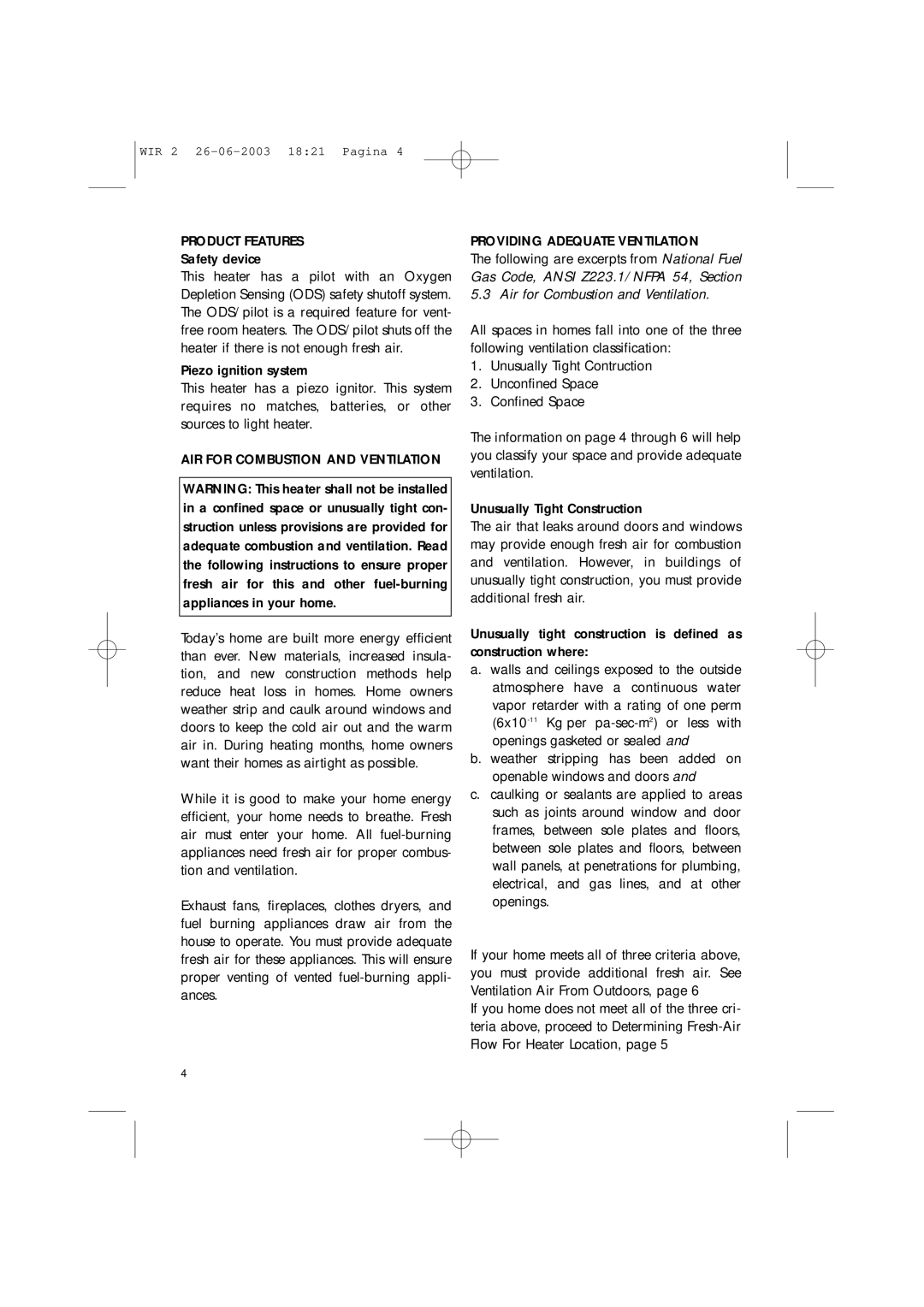WIR2, WIR1 specifications
The DeLonghi WIR2 and WIR1 are innovative and versatile kitchen appliances designed to elevate the food preparation experience. These models exemplify DeLonghi's commitment to combining technology with user-friendly design, making them ideal for both amateur cooks and culinary enthusiasts.One of the standout features of the DeLonghi WIR2 and WIR1 is their advanced heating technology. Both models utilize a highly efficient heating system that ensures even temperature distribution. This not only helps in achieving perfect cooking results but also reduces cooking times, making meal preparation more efficient. The rapid heating capability allows users to get started without long waiting periods, ideal for busy households.
Another notable characteristic of the DeLonghi WIR2 and WIR1 is their sleek and compact design. These appliances are designed to fit seamlessly into modern kitchens without taking up excessive counter space. Their aesthetic appeal is coupled with robust construction, ensuring durability and longevity. The elegant finish is easy to clean, maintaining a pristine appearance despite regular use.
The cooking versatility offered by both models is impressive. They come with multiple cooking modes, including baking, roasting, broiling, and grilling, allowing users to explore various culinary techniques. This multifunctionality means that the DeLonghi WIR2 and WIR1 can serve as a substitute for several traditional kitchen appliances, saving both space and money.
Ease of use is another key feature of these models. The intuitive control panel simplifies the cooking process, allowing users to select cooking modes and adjust temperatures with minimal effort. The inclusion of programmable timers further enhances convenience, enabling users to set their desired cooking duration without needing to monitor the appliance constantly.
The DeLonghi WIR2 and WIR1 also prioritize safety with features such as automatic shut-off and cool-touch exteriors. These elements ensure that using the appliance is safer, especially in households with children.
In conclusion, the DeLonghi WIR2 and WIR1 are exemplary choices for those who value efficiency, versatility, and modern design in their kitchen appliances. With their advanced technologies, user-friendly interfaces, and robust safety features, these models are poised to make cooking a more enjoyable and fulfilling experience. Whether you are baking a delicate soufflé or grilling a hearty steak, the DeLonghi WIR2 and WIR1 stand ready to meet your culinary needs with excellence.

